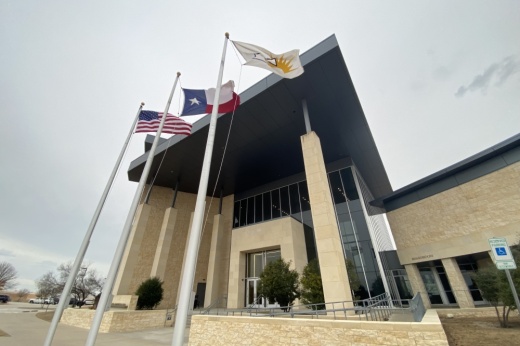The board of trustees discussed the proposed amendment at its Feb. 13 meeting and ultimately chose to not consider adding it to existing district guidelines, citing confusing wording and redundancy with existing policy.
The amendment was ultimately denied after a 5-2 vote. Board Members Marvin Lowe, the amendment’s proponent, and Stephanie Elad voted against the denial.
“I believe that [the board] all absolutely are aligned that we do not want anything CRT-related taught on campuses,” Board President René Archambault said. “What the concern is, for me, with this policy is that there's so much limitation that it brings to our teachers and to our students.”
If it had been added, the amendment would affect the district’s guidelines for addressing controversial issues in the classroom, which are currently based on existing state laws and found in the local version of section EMB of the district’s policy board manual.
Critical race theory, or CRT, was referenced in the amendment multiple times, stating teachers could not “teach, instruct, advocate, promote, or discuss any ideas, beliefs, concepts, theories, principles, rules, thoughts, or impressions that have any connection to, relationship with, refer to, are influenced by, or are otherwise consistent with so-called CRT ... as set forth herein,” according to meeting documents.
Those restrictions, as well as restrictions against discrimination in the classroom, already exist in state laws and the current FISD teaching guidelines laid out in board policy, district staff said.
“As a general rule, we don't put state laws in local policies because we don't have the authority to not follow them,” staff said.
While the term CRT came up in the amendment multiple times, there was no clear definition of what it meant in regards to the amendment itself, Board Member John Classe said.
Multiple members of the FISD and Collin County community, including parents, students, teachers and a representative from the NAACP, also spoke at the meeting.
While their reasons varied, most had similar concerns over the anti-CRT language to share with the board and the amendment’s main proponent, Lowe said.
“CRT was used to say that Blacks were suffering irreparable harm because of what has happened and therefore they're not on the same level as other people, other races,” Lowe said.
Despite public concern from meeting attendees that the amendment would hurt teachers’ ability to teach their students, the amendment does not ban teaching historical events such as slavery and the Holocaust, Lowe said.
“I absolutely hate [CRT], and I will fight it with everything that is in me,” Lowe said. “Not because I want to deny history. That is silly.”
The biggest change the amendment would make is specifically instructing teachers not to cover anything regarding the “1619 Project,” a New York Times project first published in 2019. The project places the beginning of slavery at the center and catalyst of U.S. history, according to the Aug. 14, 2019, issue of The New York Times Magazine.
“Why are we using that as an arbitrary measure to say that's when the country started? The country started in 1776 like it was supposed to,” Lowe said.
Critical race theory creates an unnecessary “lower standard” for people of color, Lowe said.
“The reason I'm fighting is because as long as we have a different standard for these people, a lower standard for people of color, you're gonna have a problem, because the world doesn’t work that way,” Lowe said.
More information about FISD policy on teaching controversial issues can be found on its website.





